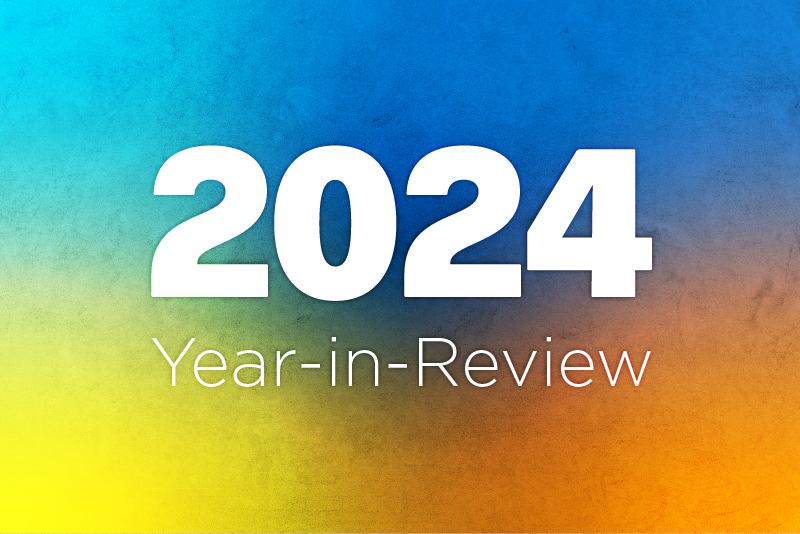This year has been one of the busiest in recent memory at the Rockefeller Institute of Government and, as 2024 comes to a close, we’d like to take a moment to highlight some of the incredible work our team has done over the past twelve months. This work runs across the breadth of expertise and experience of our research team and its collaborators, has been furthered by some key new program staff, and has been made accessible and visually digestible by our communications and events team.
Certainly, our largest research endeavor this year was conducted by our education policy team. The enacted New York State budget in April called for Rockefeller to conduct a comprehensive study of the State’s Foundation Aid education funding formula—a complex formula used to determine funding for every public school district in the state in order to ensure they can provide a “sound, basic education”—and to complete it by the beginning of December. Following five public hearings across the state, countless meetings with stakeholders, and considerable research and analysis, the report on Foundation Aid was published and delivered earlier this month to state elected officials. The report broke down how the Foundation Aid formula works, presented a menu of policy options for officials to consider, and will serve as an important reference to inform their further decision-making in the 2025 state legislative session and beyond.
In addition, our environmental policy researchers continued to build on our work related to drinking water and contaminants. In February, we followed up our 2023 report on lead service lines (that connect homes or buildings with water systems) with a symposium for policymakers, stakeholders, and practitioners. That event considered the proposed changes to the federal Lead and Copper Rule, which have since been finalized, as well as related state lawmaking, and the best practices and challenges local governments and their residents were experiencing. In addition, this year we published an updated dataset in our PFAS Policy Dashboard, that included 2023 legislation introduced and enacted across all 50 states and the definitions of PFAS they utilized. Relatedly, we are rolling out a blog series on PFAS in biosolids (sewage sludge) that helps explain the history, research, impacts, and policy proposals aimed at addressing these contaminants in this critical part of our waste system as we also seek to increase the reuse of biosolids in beneficial ways, including in agriculture.
Among other work, our health policy experts lent a considerable amount of insight into Medicaid policy and practice this year. This included diving into states’ uses of Medicaid waivers for example to cover expanded populations under the program and to address social determinants of health to improve health equity with a focus on New York State’s Medicaid waivers. While considering certain areas for expanding coverage, our researchers also looked at how states pursued Medicaid cost containment strategies, and how those strategies did and didn’t change through the COVID-19 pandemic.
Our drug policy experts also continued our considerable work analyzing the shifting landscape of laws and regulations related to marijuana, as the federal government considered rescheduling and states moved forward ballot measures regarding legalization. And in “Tote or Toke,” we looked at the intersection of cannabis and gun policy.
We also continued our research on advancing employment opportunities for people with disabilities. This included hosting a forum, “Navigating the Benefits Cliff: Policy Solutions at the Local, State, and Federal Level,” and a corresponding report, which detailed guiding principles and policy options for addressing major obstacles to employment for people with disabilities in New York State.
This year, with the generous support from the Simons Foundation and the Gordon and Betty Moore Foundation, we also established the New York State Science Policy Fellowship (SPF). The fellowship adds a new facet and focus to our existing portfolio of fellowship and internship programs for students, graduates, and faculty. The two-year program places PhDs in science, technology, and engineering in high-level public sector roles in New York State, filling a critical need for expertise that can translate across science and policy. The six fellows in our inaugural cohort joined us this August and are now working in their placements at: the New York State Energy Research & Development Authority (NYSERDA), the Department of Environmental Conservation (DEC), Empire State Development (ESD), the State Assembly, the State Senate, and the Division of Budget.
Outside of this already impressive array of research and programming Rockefeller houses the Institute on Immigrant Integration Research and Policy and the Regional Gun Violence Research Consortium. Keep an eye out for a year-in-review from the Consortium!

